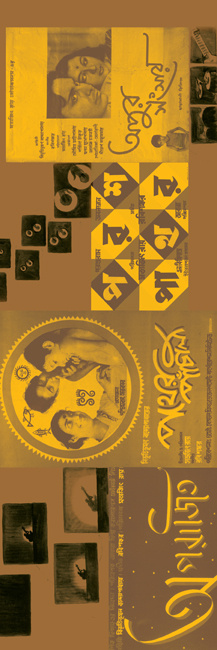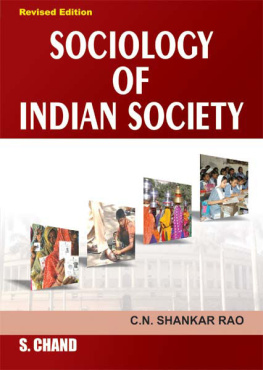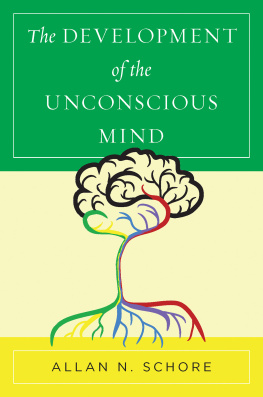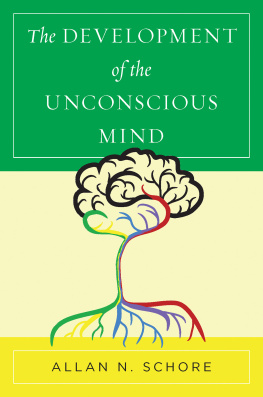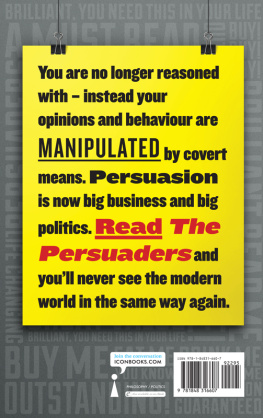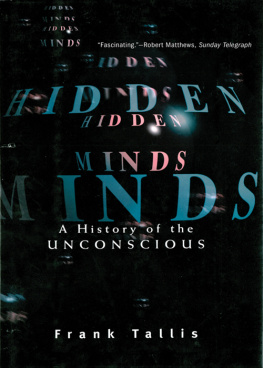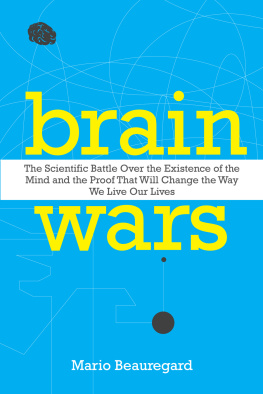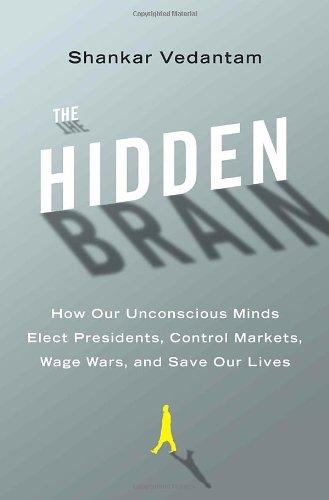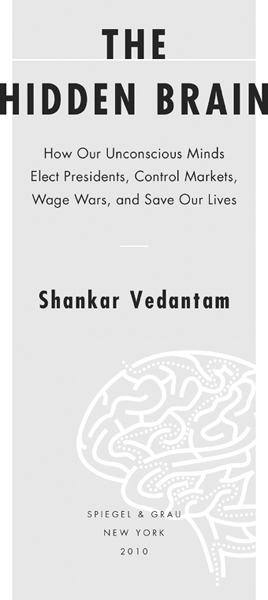2. The Ubiquitous Shadow
The Hidden Brain at Work and Play
3. Tracking the Hidden Brain
How Mental Disorders Reveal Our Unconscious Lives
4. The Infants Stare, Macaca, and Racist Seniors
The Life Cycle of Bias
5. The Invisible Current
Gender, Privilege, and the Hidden Brain
6. The Sirens Call
Disasters and the Lure of Conformity
7. The Tunnel
Terrorism, Extremism, and the Hidden Brain
8. Shades of Justice
Unconscious Bias and the Death Penalty
9. Disarming the Bomb
Politics, Race, and the Hidden Brain
10. The Telescope Effect
Lost Dogs and Genocide
Introduction
I n the spring of 2004, The Washington Post assigned me to track Ralph Nader in New England as he campaigned for president. When I got to Boston, several of Naders own aides, mindful of the consumer advocates role as spoiler in the disputed 2000 election between George W. Bush and Al Gore, told me they were going to vote against him. Since Naders campaign was going nowhere, I took a break from the political story and called a local psychologist Id heard about.
Mahzarin Banaji agreed to meet me on short notice. We met in the afternoon at her corner office in Harvard Universitys psychology department. It was an extraordinary interview: When I left, three hours later, the whole world looked different.
Banaji studied unconscious prejudicessubtle cognitive errors that lay beneath the rim of awareness. Her research disturbed me because it showed that the way we usually think about human behavior is flawed. Volunteers in Banajis experiments believed they were acting fairly, honorably, and wisely, but their actions were at odds with their intentions. They meant to do one thing but did something else. Strangely, until a psychological test revealed the discrepancy, the volunteers were not aware that they had been subtly biased.
If unconscious forces could influence us when we made swift judgments about other people, could these forces influence us all the time? Upon returning to Washington, I quickly found research that showed how hidden tugs caused people to make grave financial errors and misjudgments about risk. Experiments were showing that voters could be manipulated into choosing one candidate over anotherwithout the voters ever realizing they were manipulated. Unconscious traits explained why some married couples drifted apart and why some teams worked well together. Everywhere I looked, I found evidence of hidden cognitive mechanisms. Unconscious biases in the way memory, emotion, and attention work produced misunderstandings and protracted conflicts between people, groupseven nations. Subtle errors of the mind could explain why we have rushed into foolish wars and why we have sat on our hands as genocides unfolded. Banaji was a social psychologist, but streams of intersecting data about a hidden world in our head were flowing in from other branches of psychology, from sociology and political science, from economics and neuroscience. High-tech scans are revealing brain mechanisms that governed everything from our political preferences to our table manners. Sociological experiments explained why people unconsciously made fatal mistakes during disasters. There was even research into the unconscious biases of suicide bombers.
Most people equate the term unconscious bias with prejudice or partiality, but the new research was using the term differently: Unconscious bias described any situation where peoples actions were at odds with their intentions. The devilish thing was that people never felt manipulated. They rationalized their biases awayand even claimed ownership for actions they had not intended. Some unconscious biases were comical, others were innocuous. Many were useful. But the deadly ones conjured a Shakespearean image in my mind: the demonic Iago manipulating the gullible Othello into believing his wife was unfaithful. Like Iago, unconscious bias influenced people subtly, not overtly. It caused them to make serious errors of judgmentand then feel certain about their conclusions. It derived much of its power from the fact that people were unaware of it.
Theories about the unconscious mind went back centuries, but the new research appealed to me because it was based on measurable evidence. It relied on controlled experiments. It produced data. As a science journalist at The Washington Post, and before that at ThePhiladelphia Inquirer, I found myself attracted to research that explored complex social behavior using the tools of rigorous science. Where previous accounts of the unconscious mind often produced dramatic theories with limited impact, the new research was producing modest theories about the mindbut they had dramatic impact. In writing a Washington Post column called Department of Human Behavior that I launched in 2006, I learned that one reason unconscious biases were difficult to spot is that they were often mundane. When we saw something as monstrous as genocide, we wanted an explanation that was equally dramatic. We demanded Hitlers to explain holocausts. Dramatic explanations didnt just fit betterthey allowed us to write off systematic errors in human judgment, perception, and moral reasoning as mere aberrations.
I saw that a vast gulf had grown between what experts were learning about the mind and what most people believed. Important institutions in our society were oblivious to the new research. When disasters trapped thousands, we widened the exits to tall buildings and assumed this would allow people trapped by future disasters to escape. When discrimination reared its head, we passed hate crime laws. When the stock markets acted crazy, we blamed unreasonable panic. We believed that frightening teenagers about the consequences of drugs and unsafe sex would prompt them to be careful, we assumed that fact-checking the tall claims of politicians would set the record straight, and we were sure that good laws produced good behavior. All these theories were based on an assumptionthat human behavior was the product of knowledge and conscious intention. We believed that if you educated people, and provided them with accurate information, and offered them the right incentives, and threatened them with suitable punishments, and appealed to their better natures, and marked the exits clearly, the errors would vanish. Bad outcomes had to be the product of stupidity, ignorance, and bad intentions.
Like many assumptions, this one was impervious to contradictory evidence. When teenagers got drunk and wrecked their cars, when voters believed a politicians lies, and when juries convicted innocent people, we invariably concluded that those particular teens must have been stupid, that those particular voters must have been gullible, and that those particular juries must have been rash. Even when such errors were multiplied hundreds or thousands of timeswhen large numbers of people failed to flee disasters, when entire ethnic groups subscribed to vicious prejudices, when millions failed to intervene as their neighbors were dragged off to concentration campswe convinced ourselves that these behaviors were aberrational, not the norm. The new research showed that many errors, mishaps, and tragedies were caused by unconscious forces that acted upon people without their awareness or consent. The irresponsible driver, the apathetic bystander, and the panicked investor were not aberrations. They were us.


